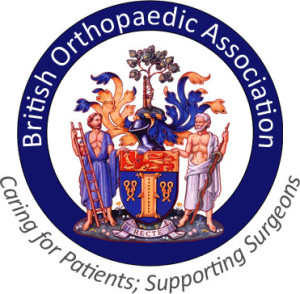Hip pain is always unwelcome, but when it affects your sleep it can start to have a far greater impact on your health and wellbeing. Whether you’re waking early or struggling to stay asleep, you’ll want to act quickly, before you find yourself caught in a vicious cycle.
Common causes of hip pain at night
A painful hip at night-time can be caused by many things:
- A mattress that’s too hard – or too soft.
- Achiness from overuse or strenuous exercise.
- Referred pain, from your back for example.
- Sports injuries, soft tissue injuries or a fracture.
- Conditions such as osteoarthritis, tendonitis and bursitis.
- Recovery from recent hip surgery.
Some of these causes will be temporary, whereas conditions such as osteoarthritis and tendonitis will require more proactive long-term action to restore a restful night’s sleep.
Managing hip pain at night
Here are some tips to help you manage your hip pain in the short-term:
- Find the right mattress. It needs to provide support without putting too much pressure on certain areas. You could try a foam mattress topper to distribute your weight more evenly and relieve the pressure on your hips.
- You might find it helpful to sleep on your back. Or you could try placing a pillow between your thighs to keep your hips aligned.
- Keep active – exercise will help to strengthen your joints and maintaining a healthy weight will help to reduce pressure on your hips. Speak to your GP or a physiotherapist before starting a new regime.
- During the day, avoid sitting with your legs crossed for long periods. Stand up straight and resist the temptation push one hip out.
- If you have any swelling, you may find it helpful to apply some ice to the area to bring this down. Heat is best for general pain and stiffness.
- Over-the-counter painkillers such as ibuprofen and aspirin can also help to bring down pain and inflammation.
If your pain is more persistent, you’ll need to seek professional help to treat the underlying cause. Your GP, physiotherapist or orthopaedic consultant may recommend the following treatments to improve your condition.
NSAIDs
If over-the-counter painkillers aren’t helping, your GP could prescribe non-steroidal anti-inflammatory drugs (NSAIDs) to relieve your pain and reduce inflammation. These are available in various forms, including tablets, capsules, creams and gels.
Physiotherapy
Your GP may refer you to a physiotherapist for specialist advice, tailored exercises and manual therapy, including massage. If there’s a waiting list for NHS treatment, you can refer yourself for private physiotherapy. We work closely with several excellent physiotherapists in Sussex.
Cortisone injections
Cortisone injections can provide a powerful anti-inflammatory effect to painful, stiff and swollen joints. The benefits can last for months, but they won’t treat the root cause of your discomfort, so your pain could return.
Surgery
If your condition can’t be helped by non-surgical treatments, your orthopaedic surgeon may recommend hip surgery, for example hip arthroscopy or even a hip replacement. Any operation requires careful consideration, but for some patients surgery is the only solution to persistent pain and it can have a life-changing impact.
If you’re struggling with chronic pain and simple home measures aren’t helping, book an appointment with your GP. They’ll put you on the right path to a good night’s sleep. Alternatively, you can refer yourself to Mr Nirav Shah directly for a private orthopaedic






